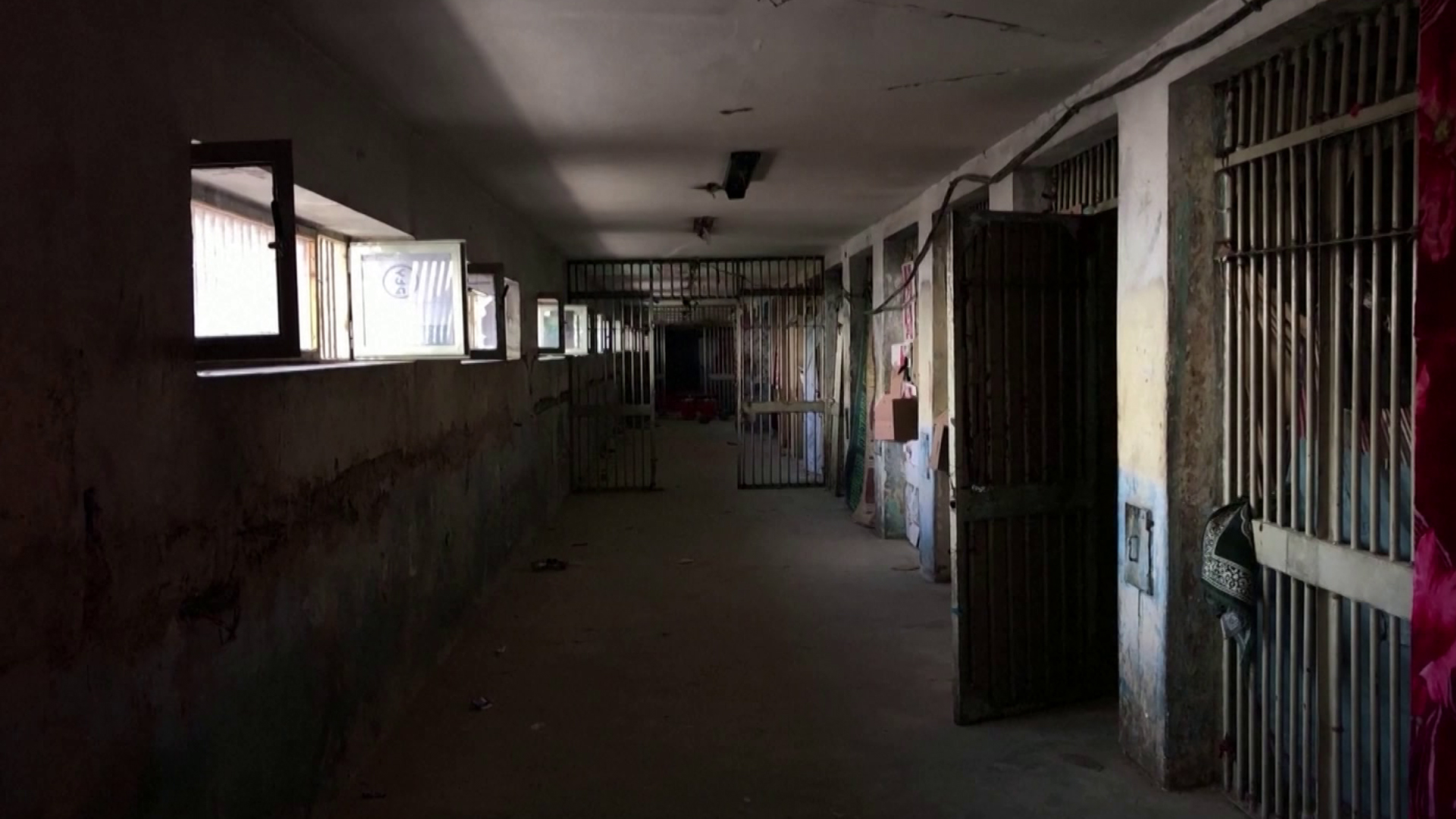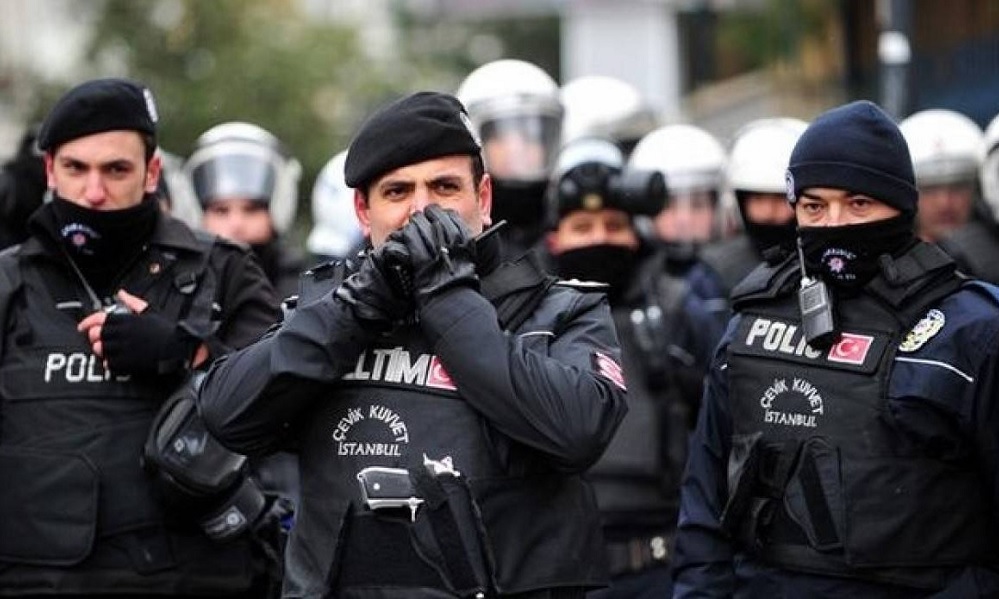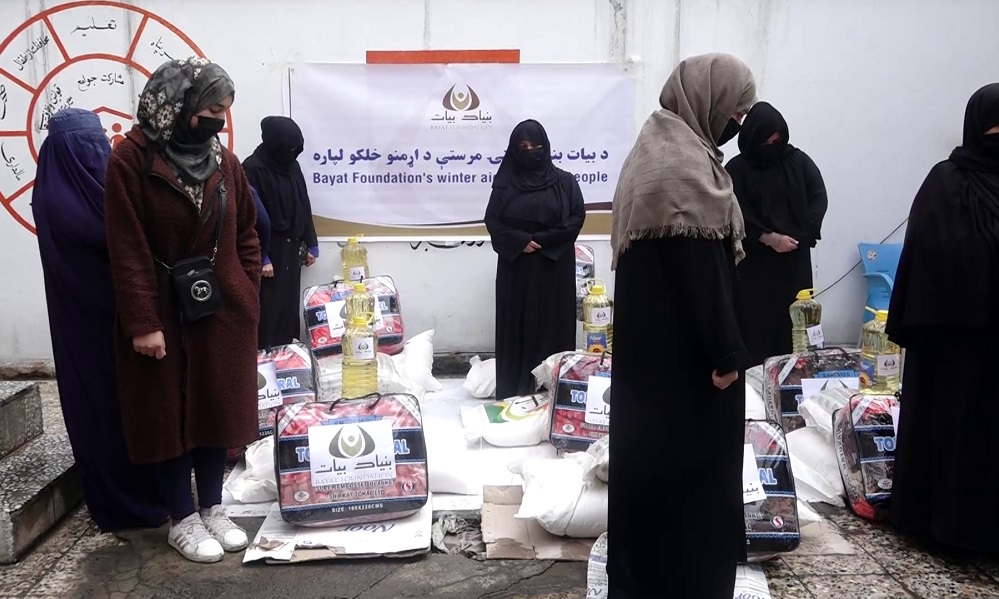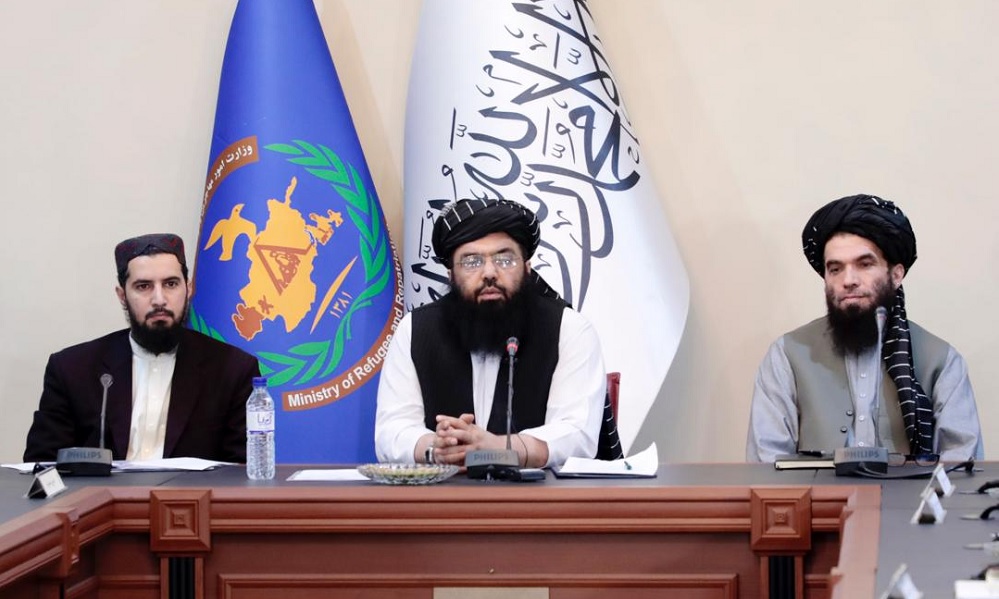Latest News
Guarded by ex-inmates, Kabul’s Pul-e-Charkhi Prison lies deserted

Afghanistan’s infamous Pul-e-Charkhi Prison, which once housed thousands of Islamic Emirate forces and Daesh fighters in its sprawling compound on the outskirts of Kabul, today stands virtually empty, except for the remnants of prisoners’ belongings and discarded documents.
On August 15, as the Islamic Emirate drove into Kabul following the fall of the previous government, the gates to the prison were flung open – ending in some cases years of incarceration for many detainees.
The once heavily fortified facility is now guarded by former inmates – Islamic Emirate members – and only a small section is used for new inmates, alleged criminals and drug addicts arrested in the past month.
A walk through the deserted cell blocks is a stark reminder of the recent changes in the country.
In some cells, personal items that once belonged to prisoners lie forgotten about, and discarded documents are testimony to the unexpected collapse of the former Ashraf Ghani government.
In parts of the prison, signs of the Islamic Emirate flag remain, as does the black flag of Daesh.
One former prison guard, Safiullah, told Ariana News: “There is no one, you can see, they have generally destroyed many places and left.”
While the majority of political prisoners were Islamic Emirate members, no differentiation was made when the gates opened. As a result hundreds of Daesh fighters also fled, as did some hardened criminals.
During the walk through of the facility, Safiullah also pointed out areas that were used for specific purposes.
“This was a Madrasa where the Islamic Emirate’s Qaris [teachers] were teaching students to memorize the Holy Quran. We set up this Madrasa for them,” Safiullah said.
One former inmate, an Islamic Emirate member Mohammad Salim, in turn pointed out the section used by prison guards to mete out punishment.
“They punished us here; they tied our hands here and punished us and beat us here,” said Salim.
Islamic Emirate authorities have however said that they are working to recapture and return some former inmates – especially hardened criminals – to the facility.
Pul-e-Charkhi has a long, disturbing history of violence, mass executions and torture.
Mass graves and torture cells were uncovered dating from the Soviet-backed governments of the late 1970s and 1980s and under the former government it was known for poor conditions and overcrowding.
The prison’s 11 cell blocks were built to house 5,000 inmates, but were often packed with more than 10,000, including political prisoners and hardened criminals.
Some of the Taliban now guarding the site were former inmates while the former guards have fled.
Latest News
Turkish intelligence captures a Daesh member near the Durand Line

Turkish intelligence agents have captured a senior member of Daesh near the Durand Line, reportedly preventing planned suicide attacks in Turkey and other countries, according to Turkey’s state-run Anadolu Agency on Monday.
The suspect, identified as Mehmet Goren, is a Turkish citizen. He was apprehended during a covert operation and transferred to Turkey. Details on the timing of the operation or the involvement of Afghan and Pakistani authorities were not disclosed.
According to the report, Goren had risen through the ranks of Daesh and was allegedly tasked with carrying out suicide bombings in Turkey, Pakistan, Afghanistan, and Europe.
Daesh has a history of deadly attacks in Turkey, including the January 1, 2017 shooting at an Istanbul nightclub that killed 39 people.
Anadolu Agency reported that Goren’s arrest also provided intelligence on the group’s recruitment strategies and planned activities.
Latest News
Dozens of needy families in Kabul receive winter aid from Bayat Foundation

Dozens of needy families in Kabul’s fifth district have received essential winter assistance from the Bayat Foundation, as part of ongoing efforts to ease hardship during the cold season and worsening economic conditions.
According to foundation officials, the aid package includes staple food items such as flour, rice, and cooking oil, along with warm blankets to help families cope with freezing temperatures. Haji Mohammad Ismail, Deputy Head of Bayat Foundation, said the distribution began in Kabul and will soon be expanded to other provinces.
“Our assistance includes flour, rice, cooking oil, and blankets,” Ismail said. “Today, we started distributing these items in Kabul’s fifth district, and God willing, the aid will reach other provinces in the near future.”
Afghanistan continues to face widespread poverty, unemployment, and food insecurity, with many families struggling to meet basic needs, particularly during winter when access to work and heating becomes more difficult.Humanitarian organizations and charitable foundations have stepped up relief efforts to support those most affected.
Beneficiaries welcomed the assistance, describing it as a lifeline. “May God bless you for helping the poor. We had nothing and no work,” said one recipient. Another added, “Thank you for your help. Our flour was almost finished.”
Bayat Foundation officials stressed that winter aid distributions will continue in Kabul and other provinces in the coming days, as part of their broader commitment to supporting needy families across the country.
Latest News
Nearly seven million Afghan refugees return home since Islamic Emirate’s takeover

Since the Islamic Emirate came to power, approximately 6.8 million Afghans have returned home, either voluntarily or forcibly, from neighboring countries and other nations, according to the Minister of Refugees and Repatriation.
Mawlawi Abdul Kabir, speaking at a meeting on finalizing a draft plan for a permanent migration solution in Afghanistan, added that 1.3 million Afghans have been internally displaced due to natural disasters during the same period.
With winter approaching, widespread poverty and severe cold are threatening thousands of lives. Meanwhile, the forced expulsion of Afghan migrants from neighboring countries, particularly Iran and Pakistan, continues.
The Islamic Emirate has repeatedly urged neighboring states to allow migrants to return voluntarily. According to UNHCR, over two million Afghans have returned from Iran and Pakistan since the start of 2025.
-

 Latest News3 days ago
Latest News3 days agoAfghan border forces prevent illegal entry of hundreds into Iran
-

 Latest News3 days ago
Latest News3 days agoPakistan summons Afghan diplomat over deadly attack in North Waziristan
-

 Latest News2 days ago
Latest News2 days agoAfghan health minister calls for medical cooperation between Kabul and New Delhi
-

 Latest News1 day ago
Latest News1 day agoAfghanistan signs 30-year deal for marble mining in Daikundi
-

 Latest News3 days ago
Latest News3 days agoJapan allocates nearly $20 million in humanitarian aid for Afghanistan
-

 Latest News2 days ago
Latest News2 days agoKarzai urges reopening of girls’ schools and universities for Afghanistan’s bright future
-

 Health5 days ago
Health5 days agoAfghanistan seeks India’s support in standardizing traditional medicine
-

 World5 days ago
World5 days agoUS readies new Russia sanctions if Putin rejects peace deal, Bloomberg News reports
























